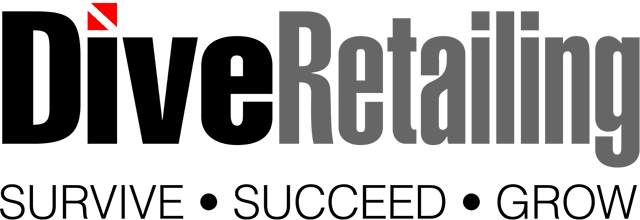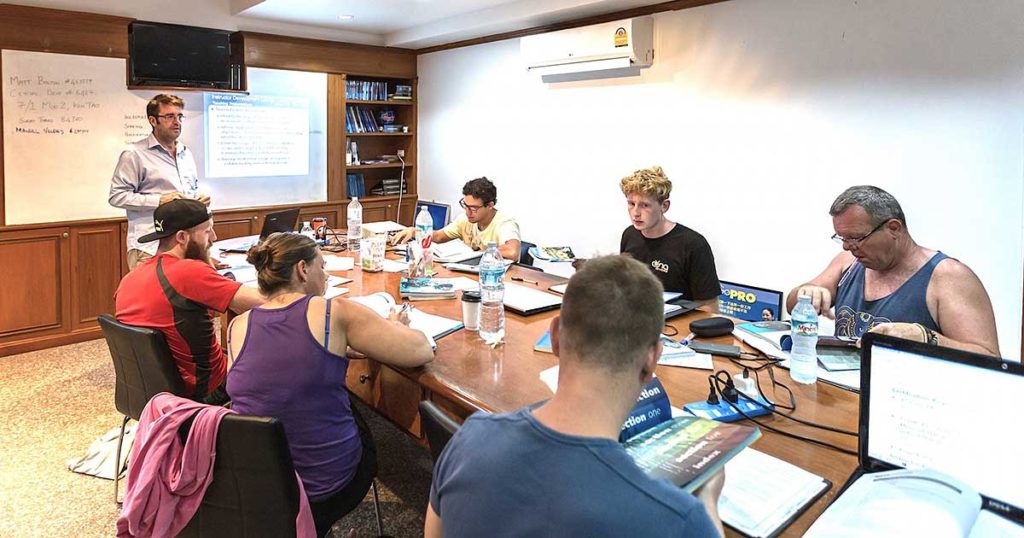The term contact hours refers to the amount of time students spend engaged in personal interaction with their instructors. And, as many dive retailers have discovered, there is a direct relationship between contact hours and sales.
Simply stated, the more time your students spend engaged in personal interaction with their instructors and other store staff, the more sales you will make.
Unfortunately, maximizing contact hours — and making the most effective use of that time — is becoming an increasingly greater challenge for dive retailers. It wasn’t always that way.
In the 1970s, month-long scuba courses with 30 or more contact hours were common. Not only was there plenty of time to cover the required academic information and water skills, there was also time to promote equipment ownership, dive travel and local dive activities. Discussion of dive equipment took place out on the sales floor, not in the classroom.
What changed? Our customers’ needs did.
- Changing lifestyles and economic conditions meant students had less time to engage in recreational activities.
- The shift in diving from being almost exclusively a local activity to one chiefly associated with vacation travel meant that students increasingly had a deadline (an upcoming vacation trip) by which they needed to complete their training.
- Additionally, diving is not likely to be your customers’ sole recreational activity. Thus we find ourselves having to compete for time with our students’ other recreational pursuits.
Despite what you sometimes hear, the move to shorter scuba courses was not a result of retailers or instructors being lazy or unwilling to invest any more than the minimum time needed in diver training. They were simply responding to customer demand and the need to be competitive.
After all, if you cannot provide customers with the opportunity to complete classroom and pool training in as little as one weekend, there is always another dive store that will.
As classes became shorter, the time available to talk about anything other than the required academic information largely disappeared. No more time out on the sales floor. No more time to show videos of upcoming trips and activities. Not surprisingly, sales suffered.
Then came something that could have changed everything: eLearning.
- The ability for students to master the required academic information outside of the classroom could have given us back the time we once had to promote equipment sales, dive travel and local activities.
- For some, very perceptive retailers, it has. Unfortunately, many dive retailers have used this opportunity to make scuba courses even shorter still. Don’t do it.
Today’s students give us little enough time to interact with them as it is. You need to take full advantage of these contact hours, not cut back on them. Specific steps you can take include:
- If you have not yet done so, start utilizing your agency’s eLearning program so that you can convert the time you once spent in the classroom into time you can use to promote equipment ownership, dive travel and local diving activities. And don’t just make it an option; make sure this is how all of your students learn.
- Make sure your instructors understand it is their responsibility to engage students, via phone and email, well in advance of the start of the course. Find out if students are making adequate progress through the eLearning materials. Ask if they have any questions. Offer to help with any of the necessary equipment purchases.
- Do not do away with classroom time just because your students no longer have to listen to an instructor drone on about physics or physiology.
- Develop your own presentations to take the place of the lectures you no longer have to do. Focus on the benefits of equipment ownership, make specific purchase recommendations and promote both dive travel and local dive activities.
Also, don’t overlook the role continuing education plays in increasing contact hours. Whether it is an Advanced course, a suite of Specialty Diver courses or just a local event or dive, always have an additional weekend of learning or diving students can take part in as soon after certification as possible.
This has proven, time and again, to do more to increase diver retention and promote equipment sales than any other aspect of your training program.


